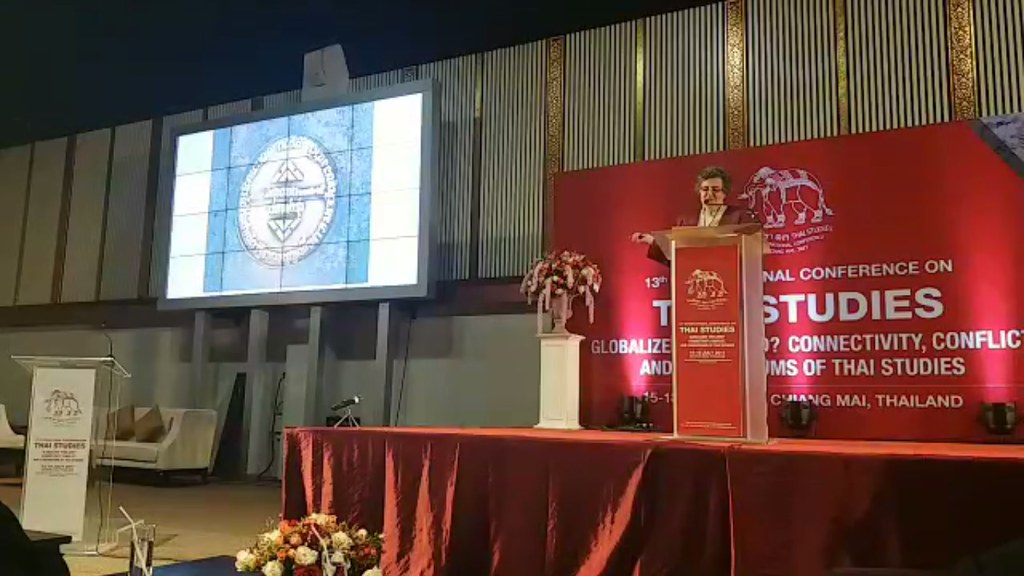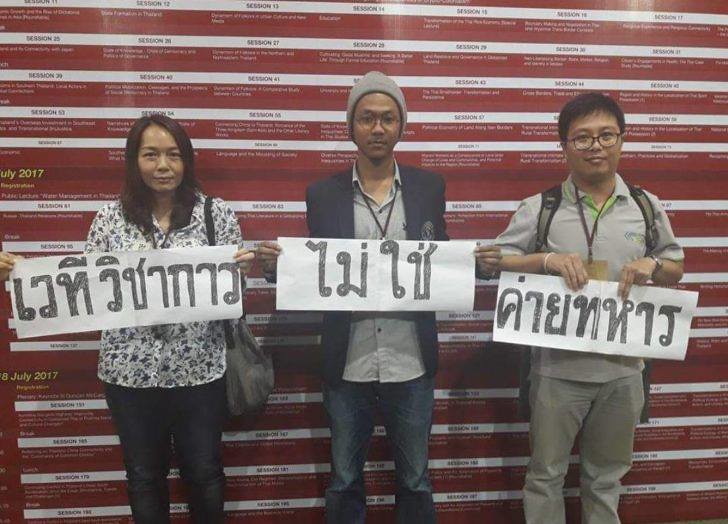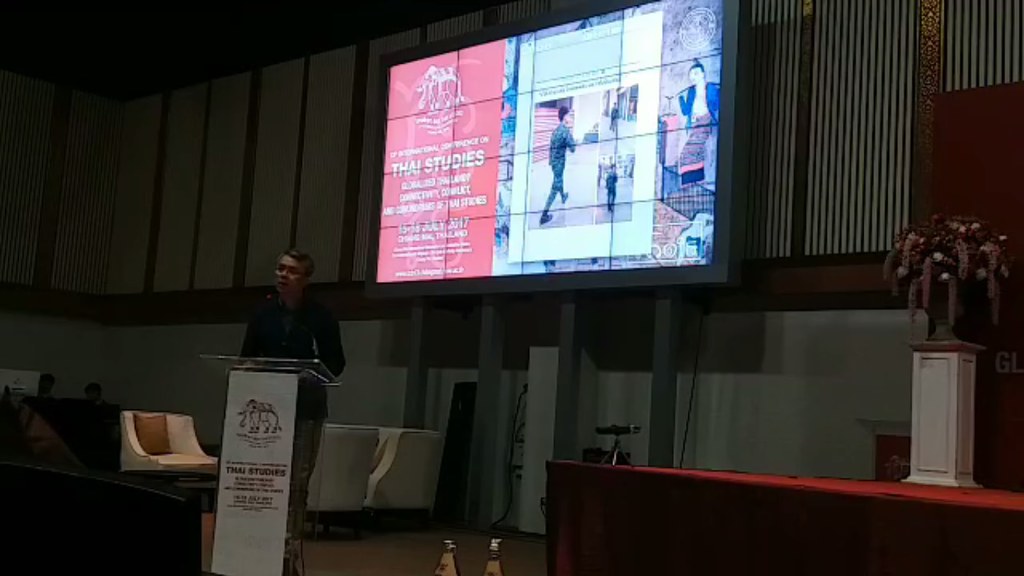The “most political” Thai studies conference was held last week, with calls for academic freedom in Thai society. The junta, however, responded by summoning three scholars.
Every three years, the International Conference on Thai Studies (ICTS) is held as a platform for scholars and researchers. This year, the 13th ICTS was hosted in Chiang Mai and 385 papers were presented between 15 and 18 July.
But the 13th ICTS was also a symbolic protest against the ruling junta. Craig Reynolds, a lecturer from the Australian National University’s College of Asia and the Pacific, said in the event’s closing speech that the 13th ICTS was the most “political” conference on Thai studies ever, since participants had tried to “speak truth to power”.
What made the 13th ICTS “political”, according to Reynolds, was that keynote speakers delved into the coup and the missing 1932 revolution plaque in a very explicit manner.

Keynote speaker Katherine A. Bowie showed an image of the 1932 revolution plaque during her speech
“The fact is that some topics can no longer be ignored and I think that’s one thing this conference has established. …The second reason that I think this is the most political of Thai studies conferences is that 1932 is still with us quite clearly. And the reason I say that has to do with an image on the screen [during] two of the keynote speeches ... There was an image of the plaque that commemorates 1932.”
Reynolds added that the mysterious disappearance of the plaque reflects its status as a “watthu mongkhon” (spiritual object) that embodies memories of the 1932 revolution. Its removal was an attempt to deny those memories, despite the fact that the plaque is mere brass. At the end of his speech, Reynolds showed an amulet replica of the missing plaque and put it around his neck, saying, “This is my new watthu mongkhon.”
Yukti Mukdawijitra showed images of a soldier observing the event
The in-conference campaign that grabbed the most attention of local security officers took place on the afternoon of 17 July. The Community of International Academics, comprising 177 Thai and foreign scholars, read a statement urging the military government to cease oppressing academic space in Thai society.
The academics also urged the junta to release prisoners of conscience including lèse majesté convicts and those who were prosecuted during the 2010 political protests. Another protest involved the holding of placards reading “an academic forum is not a military camp”.
Nonetheless, the authorities responded to the academics’ demands by issuing a letter summoning three scholars who participated in the campaign. The letter identified the three as Prajak Kongkirati, a political scientist from Thammasat University; Pakawadee Weerapaspong, an independent writer, activist, and translator; and Chaipong Samnieng, a lecturer at the Department of Sociology and Anthropology, Chiang Mai University.

Pakawadee Weerapaspong (left) and Chaipong Samnieng (right) holding up placards reading ‘An academic forum - is not - a military camp’. The man in the middle has not yet been identified (Photo from TANCR)
Junta intimidation was not only at the university level last week. Sanhanutta Sartthaporn, a grade 11 student and the Secretary-General of the education reform group Education for Liberation of Siam (ELS), was visited by two plainclothes soldiers on 21 July while he was having breakfast at his school’s canteen.
The officers asked Sanhanutta and the ELS to silence their criticisms of junta head Gen Prayut Chan-o-cha after the ELS published a statement asking the junta head to cease his interference in the Thai education system.
“If you don’t stop criticising my boss, I will pass on your name and I don’t know what will happen to you,” Sanhanutta quoted one soldier as saying.
The Ministry of Defence spokesperson Maj Gen Kongcheep Tantrawanich subsequently claimed that the two soldiers merely asked Sanhanutta for cooperation in discussing the junta’s administration appropriately.



